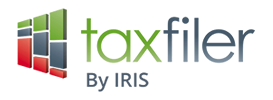No simple trading test for holiday let landlords
The furnished holiday lettings regime is due be abolished next year. HMRC has recently dismissed the introduction of a simple test to distinguish between property letting and trading. How might you be affected, and what does the announcement of a summer General Election mean for you?

At the March 2024 Budget, the government confirmed that the furnished holiday lettings (FHL) regime would be abolished from 6 April 2025. The cited reason was that there is a housing crisis in the UK and by removing tax advantages from holiday lets, there would be no incentive for landlords to target short-terms lets as opposed to long-term lets. As no draft legislation has yet been published, there has been speculation that a change of government at the looming General Election might mean uncertainty over the implementation of this policy or even abandoning it altogether. However, the idea to abolish the regime was originally floated in a report from the (now defunct) Office of Tax Simplification (OTS), so it’s probably safe to assume that it will be implemented in some shape or form.
Another OTS recommendation from the report was that a “brightline” test should be introduced to determine whether a “trade” is being carried on. This has significant implications across the whole spectrum of direct taxes, e.g. relief for losses against income and business-related reliefs for capital gains tax and inheritance tax. The Institute of Chartered Accountants in England and Wales urged HMRC to consider the introduction of such a brightline test in conjunction with the FHL regime being abolished. However, HMRC has rejected the proposals stating that whether a property business is trading will continue to be determined based on the facts and case law. This stance is likely to be grounded in the argument that the test would lead to taxpayers challenging HMRC at tribunal more frequently. Unfortunately, it’s hard to see how a potential change of government would convince HMRC to budge its view on this, so it would be prudent to assume that it’s business as usual, unless there are further announcements.
Related Topics
-
HMRC updates guidance for claiming new allowance
Qualifying expenditure on plant and machinery can qualify for a 40% first-year allowance from 1 January 2026. HMRC has now updated its guidance to help make claims. What do you need to do?
-
Get ready for Making Tax Digital for Income Tax
If you’re one of the (un)lucky individuals who need to join Making Tax Digital for Income Tax (MTD IT) from 6 April 2026, you probably know that this involves submitting regular, digital records to HMRC. But what do you need to do to prepare?
-
CT61









 This website uses both its own and third-party cookies to analyze our services and navigation on our website in order to improve its contents (analytical purposes: measure visits and sources of web traffic). The legal basis is the consent of the user, except in the case of basic cookies, which are essential to navigate this website.
This website uses both its own and third-party cookies to analyze our services and navigation on our website in order to improve its contents (analytical purposes: measure visits and sources of web traffic). The legal basis is the consent of the user, except in the case of basic cookies, which are essential to navigate this website.